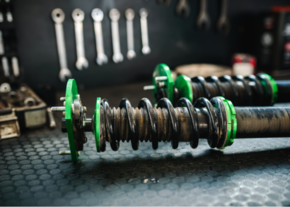
The automotive industry wagers on electric vehicles
Gian Primo Quagliano – Econometrica
Software, sensors and AI shape the future of the aftermarket sector
Electric mobility is undoubtedly the biggest challenge facing the automotive industry. In 2018, according to data from EV Volumes, the global market for electric vehicles (including plug-in hybrids and full electric) recorded a real boom in terms of sales, with a 61% increase over the previous year. Of course, volumes are still limited (roughly 2.2% of all newly registered vehicles, about 2.1 million on a global scale) and some time still will have to pass before we can witness a massive spread on a large scale, but “the die is cast”. Charging points are gradually spreading, and in terms of mileage the newest models are fast becoming a rather viable proposition.
The car market, not exactly a secret, is racing towards an electric future. What about the auto-repair sector? What destiny for the aftermarket following the advent of electric vehicles? According to analysts, as EVs continue to spread, the repair sector will be strongly affected: it is estimated that electric cars will require a third of the maintenance of a traditional car. Electric cars have fewer components to start with, and do not require the replacement of spark plugs, injectors, air filters, fuel and lubricants. Therefore, fewer trips to the local mechanic and decreasing business volumes. However, here we need to point out a critical aspect. We often forget that, besides batteries and other components typically found on electric vehicles, one of the most important elements of any EV is its software and this will be increasingly so in the future, seeing the relentless evolution towards connectivity and autonomous driving. We have to think of electric cars as the first generation of "digital native" vehicles: a car that is not simply electric, but a new concept, a new generation of connected vehicles, equipped with sensors, electronic control units and increasingly advanced software.
The spread of these cars will significantly impact the car repair business as mechanics will be called upon to deal with a large amount of data stemming from on-board systems and analysed through increasingly sophisticated algorithms. From this point of view, therefore, electric cars can be considered a great opportunity for growth. Car repairers will have to be ready to "lay their hands on" these types of cars focusing on acquiring new skills, investing in technology and training, and ensuring an increasingly effective after-sales service.
The car market, not exactly a secret, is racing towards an electric future. What about the auto-repair sector? What destiny for the aftermarket following the advent of electric vehicles? According to analysts, as EVs continue to spread, the repair sector will be strongly affected: it is estimated that electric cars will require a third of the maintenance of a traditional car. Electric cars have fewer components to start with, and do not require the replacement of spark plugs, injectors, air filters, fuel and lubricants. Therefore, fewer trips to the local mechanic and decreasing business volumes. However, here we need to point out a critical aspect. We often forget that, besides batteries and other components typically found on electric vehicles, one of the most important elements of any EV is its software and this will be increasingly so in the future, seeing the relentless evolution towards connectivity and autonomous driving. We have to think of electric cars as the first generation of "digital native" vehicles: a car that is not simply electric, but a new concept, a new generation of connected vehicles, equipped with sensors, electronic control units and increasingly advanced software.
The spread of these cars will significantly impact the car repair business as mechanics will be called upon to deal with a large amount of data stemming from on-board systems and analysed through increasingly sophisticated algorithms. From this point of view, therefore, electric cars can be considered a great opportunity for growth. Car repairers will have to be ready to "lay their hands on" these types of cars focusing on acquiring new skills, investing in technology and training, and ensuring an increasingly effective after-sales service.




























